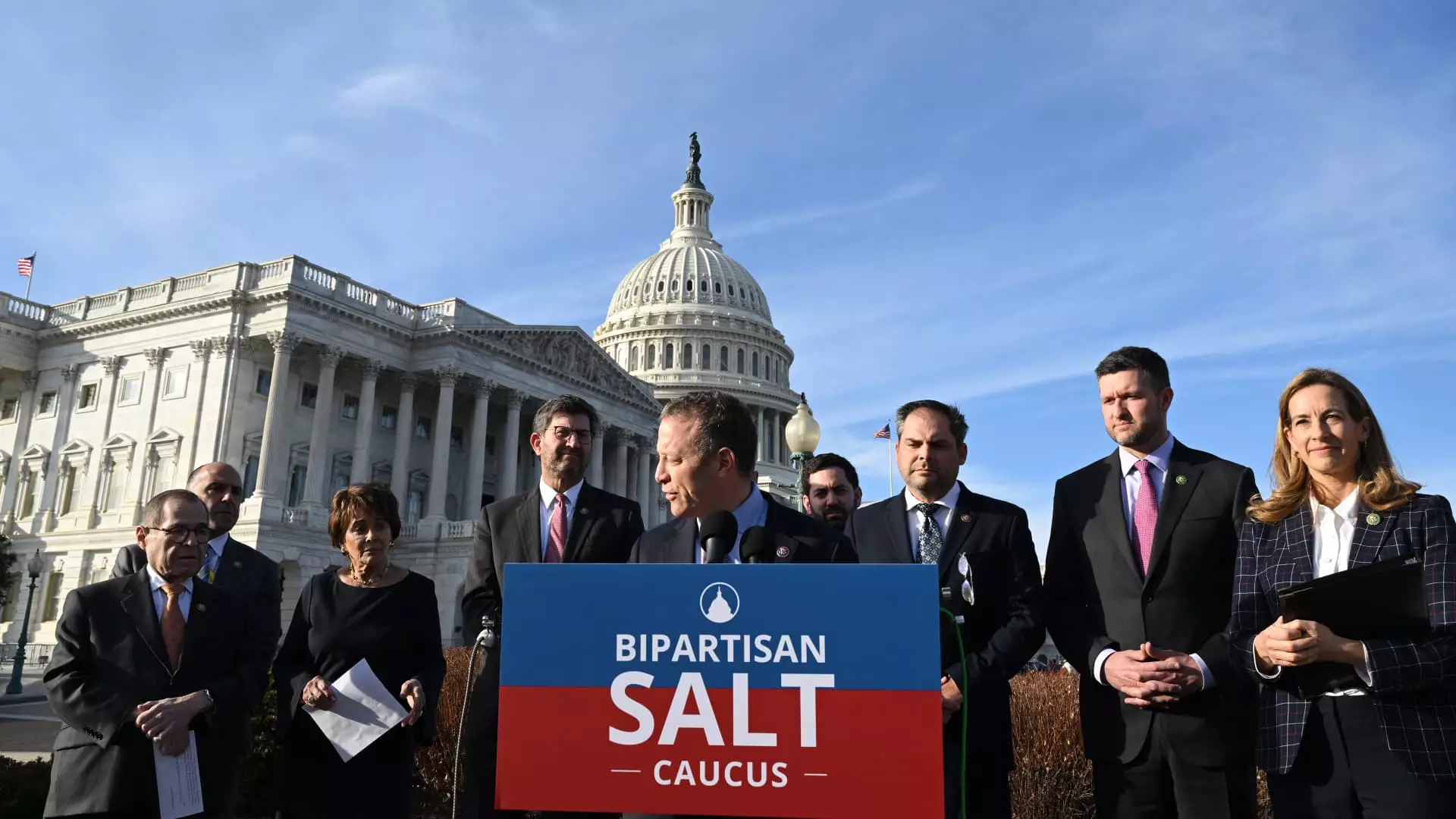The SALT (State and Local Tax) deduction has become a battleground in the discussion of tax reform, particularly since the Tax Cuts and Jobs Act (TCJA) of 2017 imposed a $10,000 limit on what taxpayers can deduct. While supporters argue that the SALT cap limits excessive deductions and promotes fairness in the tax system, a closer examination reveals that this provision disproportionately favors the wealthy. The debate over rectifying or abolishing this cap continues to gain momentum, particularly from lawmakers representing wealthy districts. Yet, this insistence on reform raises vital questions about who truly benefits from such changes.
The Disproportionate Impact of the SALT Cap
The cap on SALT deductions primarily affects high-income households residing in states with elevated taxes. Lawmakers from states like California and New York, where property and income taxes are notably high, have heavily criticized the SALT provisions, clamoring for an increase or total repeal. The irony here is palpable: efforts to address the perceived unfairness and restore the SALT deduction limit often result in policies that significantly prioritize the financial interests of the wealthy. With individuals in the top-income brackets typically bearing most of the tax burden, removing the cap serves not to rectify an injustice but to reinforce economic disparities.
A recent analysis from the Tax Policy Center elucidated this issue, indicating that most benefits from changes to the SALT deduction would funnel into the hands of households earning more than $200,000 annually. It’s crucial to recognize that the upper-middle-class designation is deceptive, as it varies based on geography and local economic conditions. Wealthy enclaves will continue to benefit significantly from any relaxation of SALT restrictions, further entrenching the socio-economic divide.
Misguided Advice: How the Wealthy Manipulate Public Sentiment
The narrative around the SALT cap often evokes arguments of fairness and equity. However, letting wealthier individuals deduct even more for their state and local taxes does little to help the average American taxpayer. The notion that an increased SALT deduction would somehow create a more just tax system is misleading. In reality, it merely serves the interests of the affluent. Politicians appealing to their high-earning constituents lure the public into supporting policies that further shield wealth from taxation.
By tapping into emotional arguments about fairness, proponents of lifting the SALT limit divert attention from the glaring fact that such a revision would serve to amplify an already skewed economic playing field. The additional deductions fundamentally work against the principles of equity; instead of creating a balanced tax obligation, it enables the rich to shield a greater portion of their income.
Land of Confusion: The Challenge of Tax Complexity
Amid this complexity, we find another layer of confusion: the federal standard deduction recently doubled under the TCJA. This means that most people, approximately 90%, utilize the standard deduction instead of itemizing. Yet, they remain oblivious to how this interacts with various tax provisions like SALT. Many tax payers feel overwhelmed by the intricacies of this system, leading to disengagement from pertinent discussions.
For the concerned citizen, understanding these tax codes becomes essential for discerning policy proposals aimed at taxation reform. Lifting the SALT cap becomes a tangled web when one considers how it interlinks with other provisions and the overall tax burden on citizens at various income levels. Simplifying the tax system rather than complicating it further ought to be the true goal of reform, yet that seems lost in conversations focused on salvaging deductions for the affluent.
The Real Stakes: A Call to Reflect on Inequality
As the conversation regarding SALT deductions unfolds, it’s imperative to reflect on the broader implications at play. Are we truly willing to continue this trend of tax legislation that favors the wealthy while leaving middle and lower-income earners holding the bag? Every dollar redirected towards additional tax breaks for the affluent is a dollar that could benefit public services, education, healthcare, and infrastructure.
While the political rhetoric often shrouds the real effects of tax policy proposals, it’s crucial for the electorate to scrutinize the actual beneficiaries of these reforms. A shift towards fostering economic equity rather than preserving the financial privileges of a select few must dominate the discourse surrounding tax legislation like SALT. If lawmakers persist in prioritizing affluent interests, we will find ourselves perpetuating a cycle of inequality and misunderstanding that future generations will struggle to dismantle.

